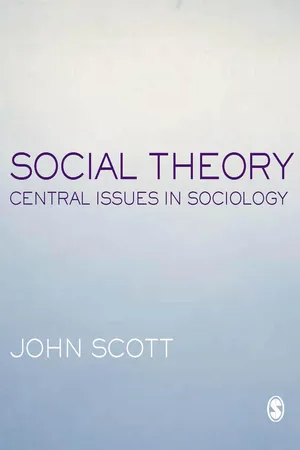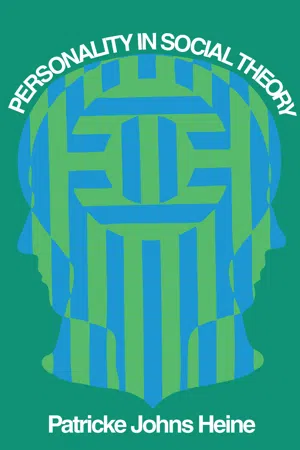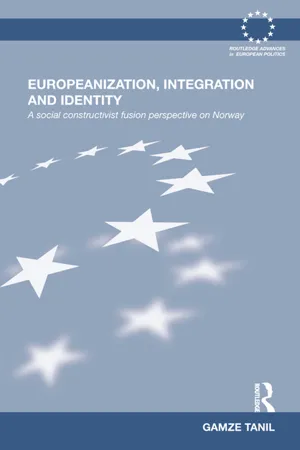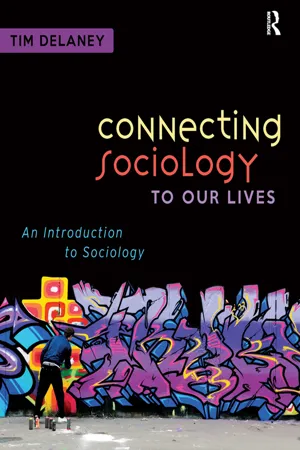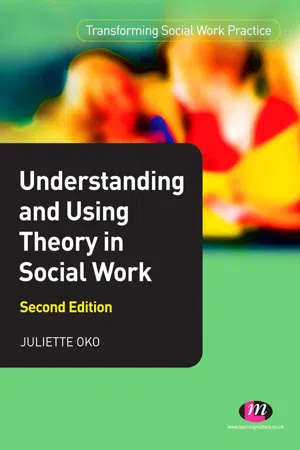Social Sciences
Theories of Socialisation
Theories of socialization are frameworks that seek to explain how individuals learn and internalize the norms, values, and behaviors of their society. These theories, which include symbolic interactionism, social learning theory, and cognitive development theory, emphasize the role of social interactions, institutions, and cultural influences in shaping an individual's identity and social behavior.
Written by Perlego with AI-assistance
Related key terms
6 Key excerpts on "Theories of Socialisation"
- eBook - ePub
Social Theory
Central Issues in Sociology
- John Scott(Author)
- 2005(Publication Date)
- SAGE Publications Ltd(Publisher)
Vilfredo Pareto (1987).Socialisation and Enculturation
Ideas of cultural formation and systemic organisation worked closely together. In each case, there was also a recognition that individuals must learn the ideas and meanings through which their social relations can be systemically organised. Many of these theorists, however, assumed this to be a relatively unproblematic process and so gave little detailed attention to it: some were quite hostile to what they saw as explanations in terms of individual ideas. A significant number of theorists, however, saw a need to directly explore the processes of socialisation through which individuals are made, or fail to be made, into fully cultural persons with the capacities to generate the systemic, structural properties of social life.Those who studied the processes of socialisation identified a variety of mechanisms of cultural acquisition. The most common approaches stressed socialisation through imitation, identification, and feelings of sympathy, while a further approach examined the social pressures that operated in both small groups and large crowds to reinforce these. A further theoretical approach focused on the shaping of the inherited responses and skills of human beings into conscious and purposive acts, producing an evolutionary psychology of mind and social action. Some theorists reflected on the diversity of human beings and suggested means through which individuals could be formed with distinct racial or sexual characters and, despite any common biological inheritance, exhibit much diversity of perspective and experience. A final set of theorists explored emotional and cognitive development in relation to the complex and changing balance between inherited capacities and social context at different stages in the life course. - eBook - ePub
- Patricke Johns Heine(Author)
- 2017(Publication Date)
- Routledge(Publisher)
1 While role theories, as customarily presented, emphasize the incorporation of the social by the growing child, G. H. Mead had originally observed the way in which role theory obliges us to “re-enter childhood.” This idea goes far to explain role theory’s facile linkage with the social phenomenon known as “child-centeredness”—that combination of conscientious empathy and aspiration that has dominated American pedagogy for the past decades—at first under the aegis of popular conditioning theory (Behaviorism), later popular Freudianism. Today, however, the changed meaning of socialization itself is largely the work of role theorists who have emphasized the continuous, ongoing nature of social learning and role taking. They emphasize the changeful, adaptive aspects of role that are at odds with early childhood determinism or fixed developmental sequences. Socialization begins in childhood but does not end there.Our dominant socialization theories bear in common the view that the young pass from “egocentric” to “sociocentric” behaviors (Piaget, Freud, Mead) and to the gradual differentiation of behavior (through learning, role taking, or the vicissitudes of different psychosexual stages on life’s way). Imitation or learning, identification and role taking are, broadly speaking, the favored first principles of behaviorism, psychoanalysis, and sociology, respectively. Neither exclusive nor fully adequate as theories, they have been modified in different ways. In general, modification has followed debate upon three aspects of socialization theory: its generalizability from place to place (cross-cultural debate); its generalizability from social class to social class (comparative class data); its fixity or permanence (primary and secondary socialization).First, the influence of anthropology on socialization theory and research has been enormous. Role theory is relatively open regarding matters of social setting and developmental sequence. Our personality theories are, by comparison, too close to our own habits and experiences to be broadly applicable. Freud’s view of the family as “the play within the play,” the little society at home, was so important it could not be dismissed. In focussing on the family, however, it soon became evident that there could be no general theory of personality development, no general talk of the “nature of man,” no fixed sequences of psychosexual phases that contributed to the character of persons everywhere. What has endured is the Freudian notion of the primacy of the family; and what has resulted is intensive research into family and childhood because the family is the “transmission belt” of culture, along with much argument about the meaning of “primary” and “secondary” institutions. The family is “primary” because it comes first, but is its influence also the most enduring? Can we derive all other institutions from it—see the shape of the economic producer as well as the heavenly Father in the roles and images it provides? We shall not tarry over these points here because we return to them later on. Let us quickly summarize the argument against the “pure personality theory” of the Freudians, according to which personality is a complex pattern of behaviors, begun in infancy, set in the course of childhood, and frozen into the character defenses we all recognize as adulthood. - eBook - ePub
Social States
China in International Institutions, 1980-2000
- Alastair Johnston(Author)
- 2014(Publication Date)
- Princeton University Press(Publisher)
Political scientists have not wandered far from these basic themes in their definitions of socialization. Ichilov refers to political socialization as “the universal processes of induction into any type of regime.” These processes focus on “how citizenship orientations emerge” (Ichilov 1990:1). Sigel refers to political socialization as the “process by which people learn to adopt the norms, values, attitudes and behaviors accepted and practiced by the ongoing system” (cited in Freedman and Freedman 1981:258). Beck and Jennings essentially see political socialization as a process by which adolescents acquire political orientations from their families and from major sociopolitical forces and events in formative periods (Beck and Jennings 1991:743). IR theorists have generally simplified socialization to processes “resulting in the internalization of norms so that they assume their “taken for granted” nature” (Risse 1997:16). Ikenberry and Kupchan borrow from Sigel and define socialization as “a process of learning in which norms and ideals are transmitted by one party to another.” In IR they limit this to a Gramscian-like process whereby state elites “internalize the norms and value orientations espoused by the hegemon and, as a consequence, become socialized into the community formed by the hegemon and other nations accepting its leadership position.” This hegemonic order “comes to possess a ‘quality of oughtness’ ” (Ikenberry and Kupchan 1990:289–90).There are a couple of common themes here: the first is that socialization is most evidently directed at, or experienced by, novices, newcomers, whether they be children, inductees into a military, immigrants, or “new” states.The second theme is the internalization of the values, roles, and understandings held by a group that constitutes the society of which the actor becomes a member. Internalization implies, further, that these values, roles, and understandings take on a character of “taken-for-grantedness” such that they are not only hard to change, but that the benefits of behavior are calculated in abstract social terms rather than concrete consequentialist terms. Why should one do X? “Because … ,” or “Because X is the right thing to do,” or “Because X is consistent with who I am,” rather than “Because it will lead to Y, and Y - eBook - ePub
- Gamze Tanil(Author)
- 2012(Publication Date)
- Routledge(Publisher)
This book accepts that institutional and normative environments have transformative effects on basic actor properties, including how individuals see themselves (conceptions of the self) and how they conceptualize their interests. This assumption has its roots not only in social constructivism, but also in sociological institutionalism and organizational theory.To mention briefly, sociological institutionalism aims to explain how cultural and organizational practices (institutions) mould the preferences, interests and identities of actors in the social world. It emphasizes the way in which institutions influence behaviour by providing cognitive scripts, categories and models that are indispensable for action (Hall and Taylor 1996:948). The argument is that institutions perform a ‘symbolic guidance function’ and contribute to actors’ senses of who they are and what their interests must be. In this way, institutional scripts socially construct the interests and actions of the actors involved.Similarly, organizational theory aims to explain how ‘organizations buffer the information and role expectations relevant for civil servants, thereby simplifying their search for alternatives, their preference formation and ultimately their choice of decision-making behaviour’ (Egeberg 1999; Trondal 2010:11). It argues that the local rationality of civil servants is systematically aggregated by this buffer function into organizational rationality; and consequently, the organizational selection of relevant information, of premises for decision-making and of role enactment affects how civil servants think, feel and act (ibid.:11).Socialization is a dynamic process whereby individuals are induced into the norms and rules of a given community, and in this process socializator educates, indoctrinates, teaches or diffuses his/her norms and ideas to the socialized individual. Therefore, the role perceptions evoked by national officials may change due to enduring exposure to institutions, accompanying new perceptions of appropriate and inappropriate behaviour (Trondal 2007:1117). - eBook - ePub
Connecting Sociology to Our Lives
An Introduction to Sociology
- Tim Delaney(Author)
- 2015(Publication Date)
- Routledge(Publisher)
As was clear in the case of Ivan, a dog cannot teach a young child how to speak any language. A parent can teach a child every language. Cases of feral children remind us of how important the socialization process is. The socialization process reveals how we become human. Without human interaction and socialization, infants will not develop properly; they will not become “human.”THEORIES OF SOCIALIZATION AND HUMAN DEVELOPMENTThe discussion of neglected and feral children highlights the nature-versus-nurture debate regarding how human development occurs. Biology (nature) certainly dictates a number of physical attributes (e.g., skin color, hair color, eye color, ancestry) and plays a role as to whether an individual is physiologically capable of learning, but does it dictate behavior? According to sociologists, socialization, past experiences, modeling, and motives—in short, the environment (nurture)—most significantly influence human behavior. It might help to think of social forces and natural innate traits, in terms of their significance for human behavior, as two ends of a “nature-nurture continuum.” Both forces play a role in human development, but in sociology, the pendulum swings toward nurture.A number of significant theories have been put forth in an attempt to explain how human development occurs. Some of these theories favor the nature approach while others rely more heavily on the nurture approach. Considering that sociology leans heavily on the importance of learning, most sociologists embrace human-development theories that emphasize the importance of nurturing factors. To illustrate both the nurture and nature approaches to human development, two classical psychological theories are discussed here. We begin with Sigmund Freud and his theory of psychoanalysis.Sigmund Freud and Psychoanalysis
Sigmund Freud (1856–1939) was a medical doctor specializing in neurology during an era when most causes of human behavior were deemed biological in origin. Freud developed his theory of psychoanalysis through years of treating patients for mental or emotional problems. For years during and after Freud’s lifetime, psychoanalysis was a dominant theory, but in recent decades it has largely been replaced by other approaches to treating mental disorders. - eBook - ePub
- Juliette Oko(Author)
- 2011(Publication Date)
- Learning Matters(Publisher)
Social exclusion and social work. Both edited texts deal comprehensively with the social challenges that social work is charged with.)Understanding the role of theory to inform our practice
So far, I have introduced the term ‘theory’ in inverted commas to refer to the range of knowledge, or ideas, skills and beliefs we draw upon to help us make sense of ‘what social work is’, which in turn influences our view of ‘how to do social work’. In this section I will introduce a definition of what is meant by the term ‘theory’ and its central importance in helping us inform our view of social work. (These ideas are discussed more fully in Chapter 2 when I look at the distinction between formal and informal theories about the nature of society and how these influence our view about the nature and purpose of social work.)To begin with however, a theory can be described as representing a set of related ideas and assumptions that are drawn upon to help explain a particular phenomenon. A theory represents therefore an explanatory framework which attempts to help us make sense of the phenomenon in question – in this case, the context of social work. These explanations provide us with an opportunity to hypothesise, or make a judgement, about what we think is going on. In other words, these ideas and assumptions, when acknowledged, provide us with an explanation that can aid our understanding of what the matter is – that is, they help us answer the question of what is going on, what can be done to help and why. Theories essentially help us structure and organise our thinking and are central to helping us make sense of our practice and what we do. In social work, the theories which have predominantly influenced our thinking have been drawn from three main sources, namely; psychological, sociological and biological explanations. These have been drawn upon to help social workers make sense of questions about the nature of social work and its practice context and the difficulties faced by service users and carers.
Learn about this page
Index pages curate the most relevant extracts from our library of academic textbooks. They’ve been created using an in-house natural language model (NLM), each adding context and meaning to key research topics.
